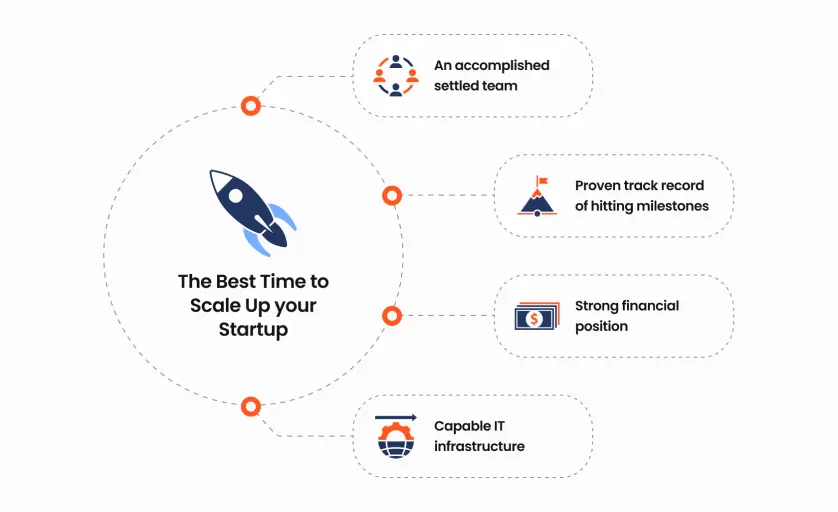Scalable Startup Entrepreneurship: Key to Sustainable Growth
As an experienced startup entrepreneur, I’ve learned that the key to long-term success lies in building a scalable business model. Scalable startup entrepreneurship goes beyond simply launching a new venture – it’s about creating a company that can grow rapidly and sustainably over time. In this article, I’ll share my insights on mastering scalable startup entrepreneurship and the strategies that can lead to lasting growth.
Table of Contents
The Importance of Sustainable Growth for Startups
In the dynamic world of startups, growth is often the primary metric of success. However, growth without sustainability can be a recipe for disaster. Many startups achieve rapid initial growth only to falter and fail when they’re unable to maintain that momentum. Sustainable growth, on the other hand, is the foundation for long-term prosperity. By building a scalable business model, startups can achieve consistent, profitable growth that sets them up for lasting success.
Characteristics of Scalable Startups
Scalable startups share several key characteristics that set them apart from their less scalable counterparts:
- Replicable Business Model: Scalable startups have a business model that can be easily replicated and expanded, often through the use of technology or streamlined processes.
- Efficient Operations: Scalable startups prioritize operational efficiency, automating and optimizing processes to minimize costs and maximize productivity.
- Adaptable to Change: Scalable startups are agile and responsive, able to quickly adapt to changing market conditions and customer needs.
- Focused on Innovation: Scalable startups continuously innovate, developing new products, services, or business models to stay ahead of the competition.
- Scalable Technology: Scalable startups leverage technology to enable rapid growth, such as cloud-based infrastructure, AI-powered automation, and data-driven decision-making.

Key Factors for Sustainable Growth in Startups
Achieving sustainable growth in a startup requires a multifaceted approach. Here are some of the key factors that contribute to long-term success:
- Clearly Defined Vision and Strategy: Successful startups have a clear, well-articulated vision for their business and a strategic plan to achieve it.
- Strong Founding Team: Scalable startups are led by a founding team with complementary skills, experience, and a shared commitment to the company’s mission.
- Robust Financial Management: Effective financial planning, budgeting, and cash flow management are essential for sustainable growth.
- Continuous Innovation: Startups must continuously innovate, adapting their products, services, and business models to meet evolving customer needs.
- Effective Marketing and Customer Acquisition: Successful startups have a well-executed marketing strategy and efficient customer acquisition processes.
- Scalable Operations and Infrastructure: Startups must build scalable operations and infrastructure to support rapid growth without compromising quality or efficiency.
- Strong Company Culture: A positive, collaborative company culture can foster employee engagement, innovation, and loyalty, all of which contribute to sustainable growth.
Building a Scalable Business Model
Constructing a scalable business model is a critical step in achieving sustainable growth. This involves:
- Identifying a Scalable Value Proposition: Determine a unique value proposition that can be easily replicated and scaled to serve a large, addressable market.
- Developing Scalable Products or Services: Design products or services that can be efficiently produced, distributed, and supported at scale.
- Implementing Scalable Processes and Systems: Implement streamlined, automated processes and robust systems to support efficient operations and rapid growth.
- Leveraging Scalable Technology: Incorporate scalable technologies, such as cloud computing, AI, and data analytics, to enable efficient, high-capacity operations.
- Establishing Scalable Sales and Marketing Channels: Build sales and marketing channels that can be easily replicated and expanded to reach a broader customer base.
Strategies for Scaling Your Startup
Once you’ve established a scalable business model, there are several key strategies you can employ to scale your startup effectively:
- Prioritize Operational Efficiency: Continuously optimize your processes, systems, and infrastructure to maximize productivity and minimize costs.
- Expand into New Markets: Identify and enter new geographic or industry markets that align with your core value proposition and growth strategy.
- Diversify Your Product or Service Offerings: Develop complementary products or services that leverage your existing capabilities and customer base.
- Leverage Strategic Partnerships: Collaborate with other companies to access new resources, distribution channels, or customer segments.
- Implement Scalable Marketing and Sales Strategies: Develop and refine marketing and sales tactics that can be easily replicated and scaled to reach a broader audience.
- Attract and Retain Top Talent: Build a strong, engaged team that can support and drive your company’s growth.

Overcoming Challenges in Scalable Startup Entrepreneurship
Scaling a startup has its challenges. Some common obstacles include:
- Managing Rapid Growth: Rapid growth can strain resources, processes, and infrastructure, requiring careful planning and agile adaptation.
- Maintaining Company Culture: As a startup scales, preserving a strong, cohesive company culture becomes increasingly important but more challenging.
- Securing Sufficient Funding: Scaling a business often requires significant capital investment, which can be a major hurdle for many startups.
- Adapting to Changing Market Conditions: Startups must be able to quickly pivot their strategies and operations to respond to evolving market trends and customer needs.
- Balancing Innovation and Efficiency: Startups must strike a balance between continuously innovating and maintaining operational efficiency to support sustainable growth.

Also Read: How to Handle a Traffic Ticket for Speeding in a Work Zone
Tools and Resources for Scaling Your Startup
To help you navigate the challenges of scalable startup entrepreneurship, there are a variety of tools and resources available:
- Project Management and Collaboration Tools: Tools like Trello, Asana, and Slack can help you streamline workflows, improve team coordination, and enhance productivity.
- Automation and Workflow Tools: Platforms like Zapier, IFTTT, and Integromat can help you automate repetitive tasks and optimize your business processes.
- Data Analytics and Business Intelligence Tools: Solutions like Google Analytics, Mixpanel, and Tableau can provide valuable insights to support data-driven decision-making.
- Scalable Cloud Infrastructure: Services like AWS, Google Cloud, and Microsoft Azure offer scalable, cost-effective cloud-based infrastructure to support your growing business.
- Startup Accelerators and Incubators: Participating in programs like Y Combinator, Techstars, or 500 Startups can provide access to mentorship, funding, and a network of fellow entrepreneurs.
- Entrepreneurial Communities and Networking Events: Engaging with local and online entrepreneurial communities can help you learn from experienced founders and build valuable connections.
Frequently Asked Questions
Q: How do I know if my startup is ready to scale?
A: There are several key indicators that your startup is ready to scale, including consistent revenue growth, a proven business model, a scalable technology infrastructure, and a strong, engaged team. It’s important to carefully assess your company’s readiness before embarking on a scaling journey.
Q: What are the most common mistakes startups make when trying to scale?
A: Some of the most common mistakes include scaling too quickly without the necessary infrastructure in place, failing to adapt their business model or operations to support growth, neglecting to invest in talent and company culture, and not securing sufficient funding to sustain the scaling process.
Q: How can I ensure my startup’s growth is sustainable?
A: Sustainable growth requires a multifaceted approach, including building a scalable business model, optimizing operations, continuously innovating, and maintaining a strong, engaged team. It’s also crucial to carefully manage cash flow, diversify revenue streams, and adapt your strategies to changing market conditions.
Suppose you’re a startup founder looking to build a scalable, sustainable business. In that case, I encourage you to [schedule a consultation] with me. I can help you assess your company’s readiness, develop a strategic growth plan, and provide personalized guidance to overcome the challenges of scalable startup entrepreneurship.
Conclusion
Mastering scalable startup entrepreneurship is the key to achieving long-term, sustainable growth. By building a scalable business model, leveraging effective scaling strategies, and overcoming common challenges, startups can position themselves for lasting success. With the right tools, resources, and a commitment to continuous innovation, you can transform your startup into a thriving, scalable enterprise. Remember, the path to sustainable growth is not without its obstacles. Still, with the right mindset and approach, the rewards can be truly transformative.







